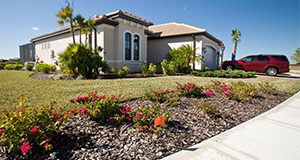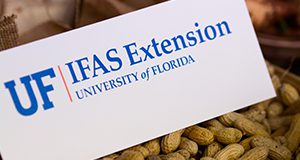Residents may be inclined to over-fertilize their lawns due to pressure to maintain a neighborhood aesthetic. However, this activity can affect water quality. This 3-page document describes a study that was conducted in order to determine if video messages about fertilizer best management practices influenced perceptions of fertilizer use among residents. Written by Amanda D. Ali, Laura A. Sanagorski Warner, Peyton Beattie, Alexa J. Lamm, and Joy N. Rumble and published by the UF/IFAS Department of Agricultural Education and Communication, July 2018.
http://edis.ifas.ufl.edu/wc309
Tag: Amanda Ali
Using Perceived Landscape Benefits to Subgroup Extension Clients to Promote Urban Landscape Water Conservation
Because a large percentage of water used in urban areas can be applied through irrigation, home landscape management practices are an important factor of water conservation. The information in this 5-page document is the result of a cluster analysis used to identify meaningful subgroups among home irrigation users to encourage water conservation behaviors. Written by Amanda D. Ali, Laura A. Sanagorski Warner, and Anil Kumar Chaudhary and published by the UF/IFAS Department of Agricultural Education and Communication, May 2018.
http://edis.ifas.ufl.edu/wc291
Residents' Perceived Landscape Benefits Can Help Extension Promote Good Landscape Management Practices

Households can help conserve and protect water resources through irrigation and fertilizer best practices without compromising the quality of their landscape. UF/IFAS Extension, along with Extension services across the country, conducts programs to protect water quality and quantity by educating communities and individuals about research-based landscape practices. This four-page fact sheet describes the results of a survey that can help Extension promote good landscape management practices. Written by Laura A. Warner, Amanda D. Ali, and Anil Kumar Chaudhary and published by the Department of Agricultural Education and Communication.
http://edis.ifas.ufl.edu/wc282
Enhancing the Success of Extension Programs with the Social Exchange Theory
Social Exchange Theory (SET) is based on the principle that human behavior is an exchange of rewards between people. This three-page fact sheet explains how it can be applied to Extension programming to promote clientele participation in programs and a commitment to changing their behaviors. Written by Amanda D. Ali and Laura A. Warner and published by the Department of Agricultural Education and Communication.
http://edis.ifas.ufl.edu/wc280
Consultation Forms for Walk-In Clientele and Landscape Site Visits
This eight-page fact sheet contains forms for horticulture Extension agents and staff to use during walk-in consultations and/or on-site consultations related to plant identification, problem diagnosis, and cultural advice. The forms are available as fillable PDFs. Written by Amanda D. Ali, Laura A. Warner, Sydney Park Brown, Susan Haddock, and Laurie Albrecht and published by the Department of Agricultural Education and Communication.
http://edis.ifas.ufl.edu/wc277
Estimating Return on Investment (ROI) for a Behavior Change: An Evaluation Tool for Extension Programs
Extension professionals can benefit from knowing the value of a program’s outcomes compared to how much it costs. One way to estimate a program’s value relative to cost is through a series of calculations, known as Return on Investment (ROI). This four-page fact sheet describes ROI and how Extension professionals can use it in their programming. Written by Amanda D. Ali, Laura A. Warner, and Hayk Khachatryan and published by the Department of Agricultural Education and Communication.
http://edis.ifas.ufl.edu/wc270


